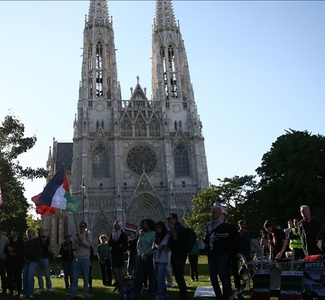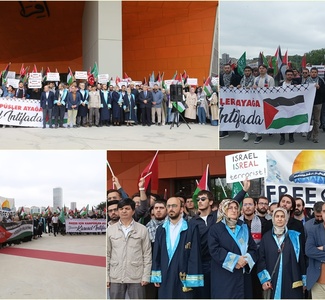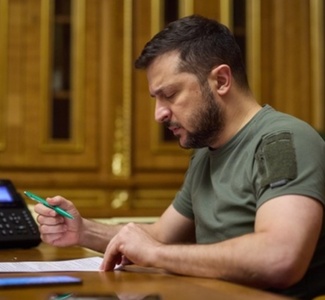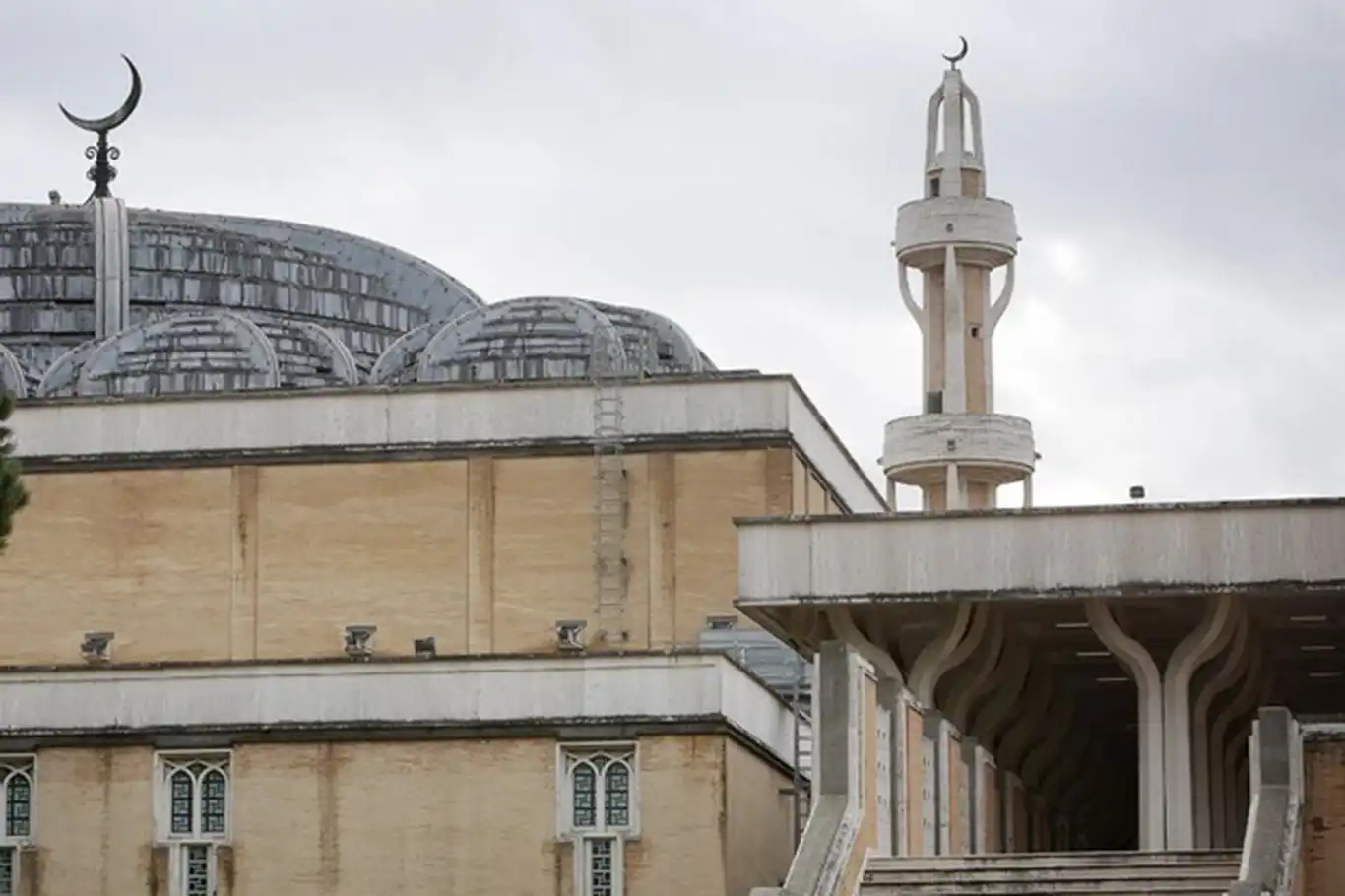HÜDA PAR to hold the 2nd International Salahuddin Al-Ayyubi Symposium
HÜDA PAR will hold the symposium to commemorate the conqueror of Jerusalem, Salahuddin Al-Ayyubi, which was one of the prominent Islamic command, as well as to create a consciousness in the society in order to liberate Jerusalem again.
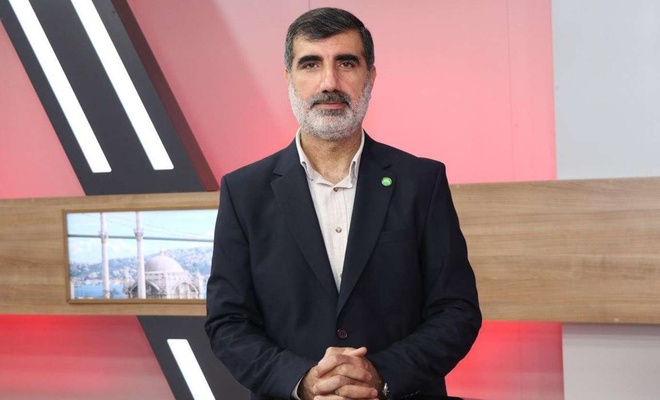
 Google News'te Doğruhaber'e abone olun.
Google News'te Doğruhaber'e abone olun. Many politicians and academics around the world will participate the symposium.
At the symposium, where HÜDA PAR Chairman İshak Sağlam will deliver the opening speech and Turkey’s President Recep Tayyip Erdogan will send a message; many scholars and academics from Palestine, Iran, Syria, Iraq, Afghanistan, Mauritania and many other countries will participate in the symposium and submit their presentations.
Speaking to Ilke News Agency regarding the symposium, which will be held on 3 and 4 October via video conference, HÜDA PAR Deputy Chairman Mehmet Eşin said that the symposium aims to create a consciousness in the society in order to liberate Jerusalem again and to establish a Salahuddin Al-Ayyubi Institute in the coming days.
Reminding that HÜDA PAR organized the first symposium last year on the anniversary of the liberation of Jerusalem from crusaders, Eşin said: “If course, it was a start. Our aim is to turn this organization into an international symposium with wider participation every year after that and to turn the work into an institute and academy such as 'Saladin-i Ayyubi Research Center' based on these symposia in the future.”
Who was Salahuddin Al-Ayyubi?
An-Nasir Salah ad-Din Yusuf ibn Ayyub, known as Salah ad-Din or Saladin, was the founder of the Ayyubid dynasty and the first to hold the title of the Custodian of the Two Holy Mosques.
A Sunni Muslim of Kurdish ethnicity, Saladin led the Muslim military campaign against the Crusader states in the Levant.
During his reign, Saladin has been described as the de facto Caliph of Islam and at the height of his power, his empire included Egypt, Syria, Upper Mesopotamia, the Hejaz, Yemen and other parts of North Africa.
He was originally sent to Fatimid Egypt in 1164 alongside his uncle Shirkuh, a general of the Zengid army, on the orders of their lord Nur ad-Din to help restore Shawar as vizier of the teenage Fatimid caliph al-Adid. A power struggle ensued between Shirkuh and Shawar after the latter was reinstated. Saladin, meanwhile, climbed the ranks of the Fatimid government by virtue of his military successes against Crusader assaults against its territory and his personal closeness to al-Adid. After Shawar was assassinated and Shirkuh died in 1169, al-Adid appointed Saladin vizier, a rare nomination of a Sunni Muslim to such an important position in the Isma'ili Shia caliphate.
During his tenure as vizier, Saladin began to undermine the Fatimid establishment and, following al-Adid's death in 1171, he abolished the Fatimid Caliphate and realigned the country's allegiance with the Sunni, Baghdad-based Abbasid Caliphate.
In the following years, he led forays against the Crusaders in Palestine, commissioned the successful conquest of Yemen, and staved off pro-Fatimid rebellions in Upper Egypt.
Not long after Nur ad-Din's death in 1174, Saladin launched his conquest of Syria, peacefully entering Damascus at the request of its governor. By mid-1175, Saladin had conquered Hama and Homs, inviting the animosity of other Zengid lords, the official rulers of Syria's various regions.
Soon after, he defeated the Zengid army at the Battle of the Horns of Hama and was thereafter proclaimed the "Sultan of Egypt and Syria" by the Abbasid caliph al-Mustadi.
Saladin made further conquests in northern Syria and Jazira, escaping two attempts on his life by Assassins, before returning to Egypt in 1177 to address issues there. By 1182, Saladin had completed the conquest of Muslim Syria after capturing Aleppo, but ultimately failed to take over the Zengid stronghold of Mosul.
Under Saladin's command, the Ayyubid army defeated the Crusaders at the decisive Battle of Hattin in 1187, and thereafter wrested control of Palestine—including the city of Jerusalem—from the Crusaders, who had conquered the area 88 years earlier.
Although the Crusader Kingdom of Jerusalem continued to exist until the late 13th century, its defeat at Hattin marked a turning point in its conflict with the Muslim powers of the region.
Saladin died in Damascus in 1193, having given away much of his personal wealth to his subjects. He is buried in a mausoleum adjacent to the Umayyad Mosque.
Saladin has become a prominent figure in Muslim, Arab, Turkish and Kurdish culture, and he has often been described as being the most famous Kurd in history. (ILKHA)

































